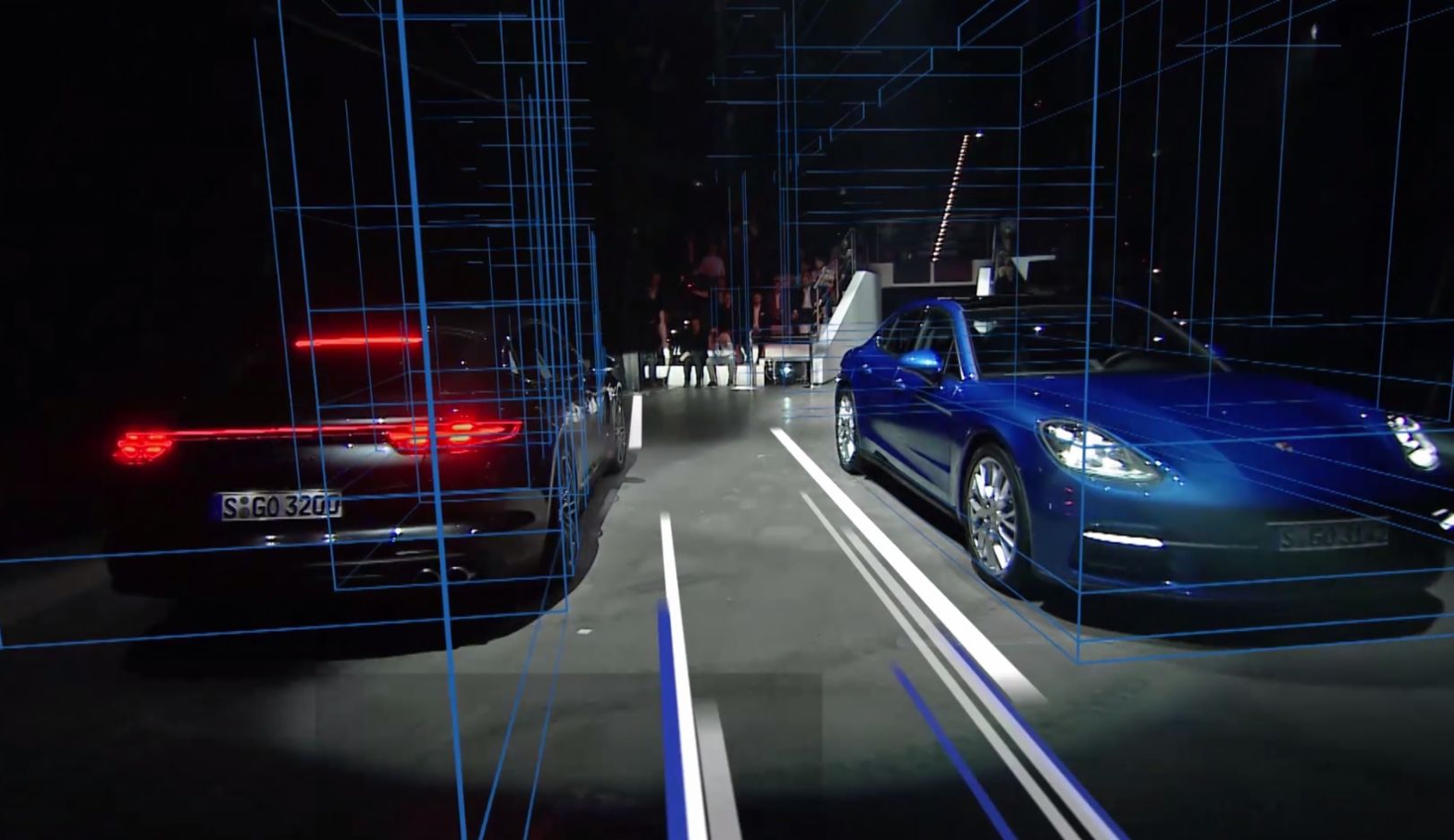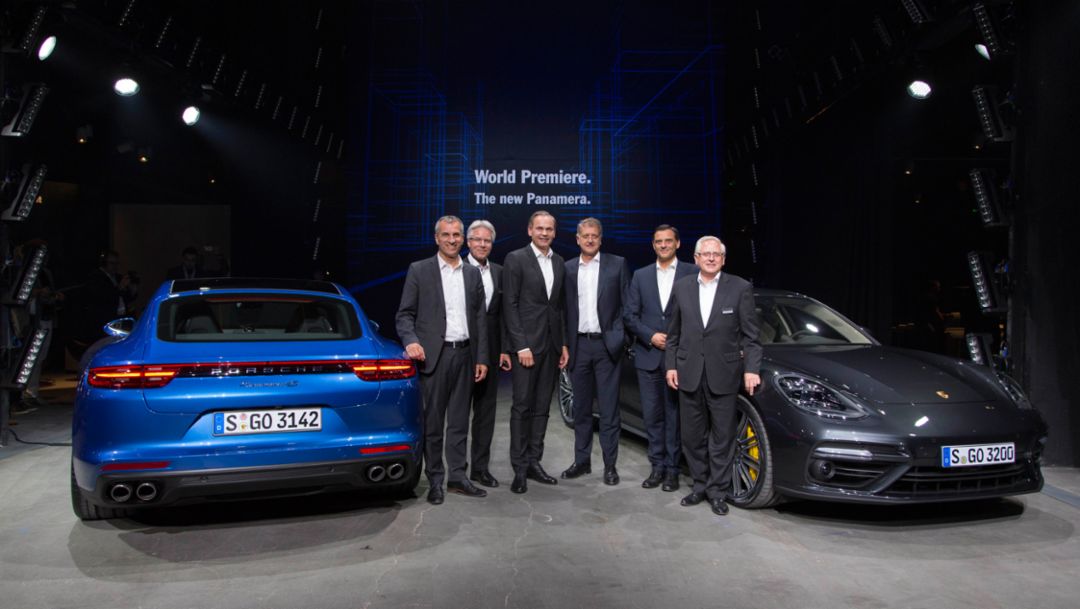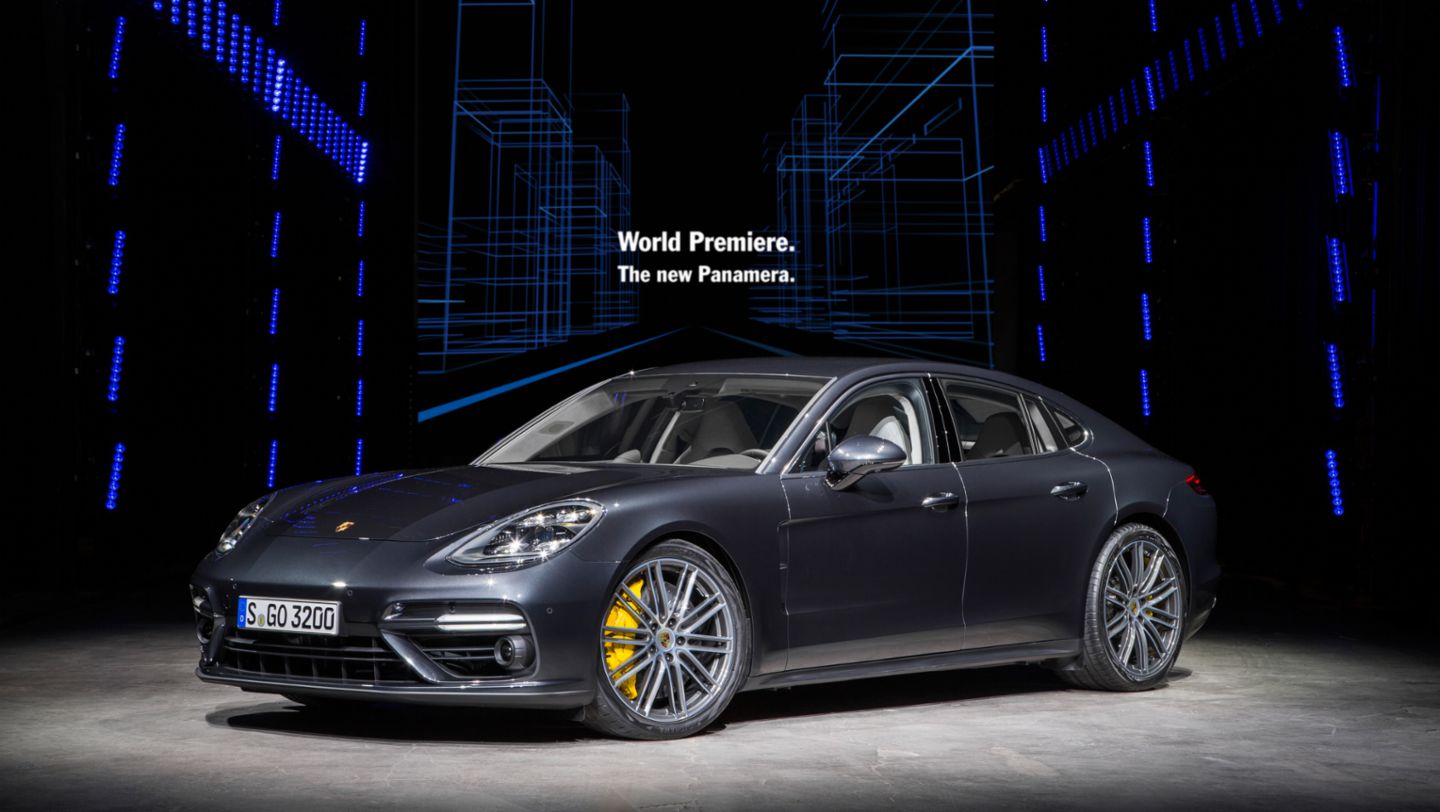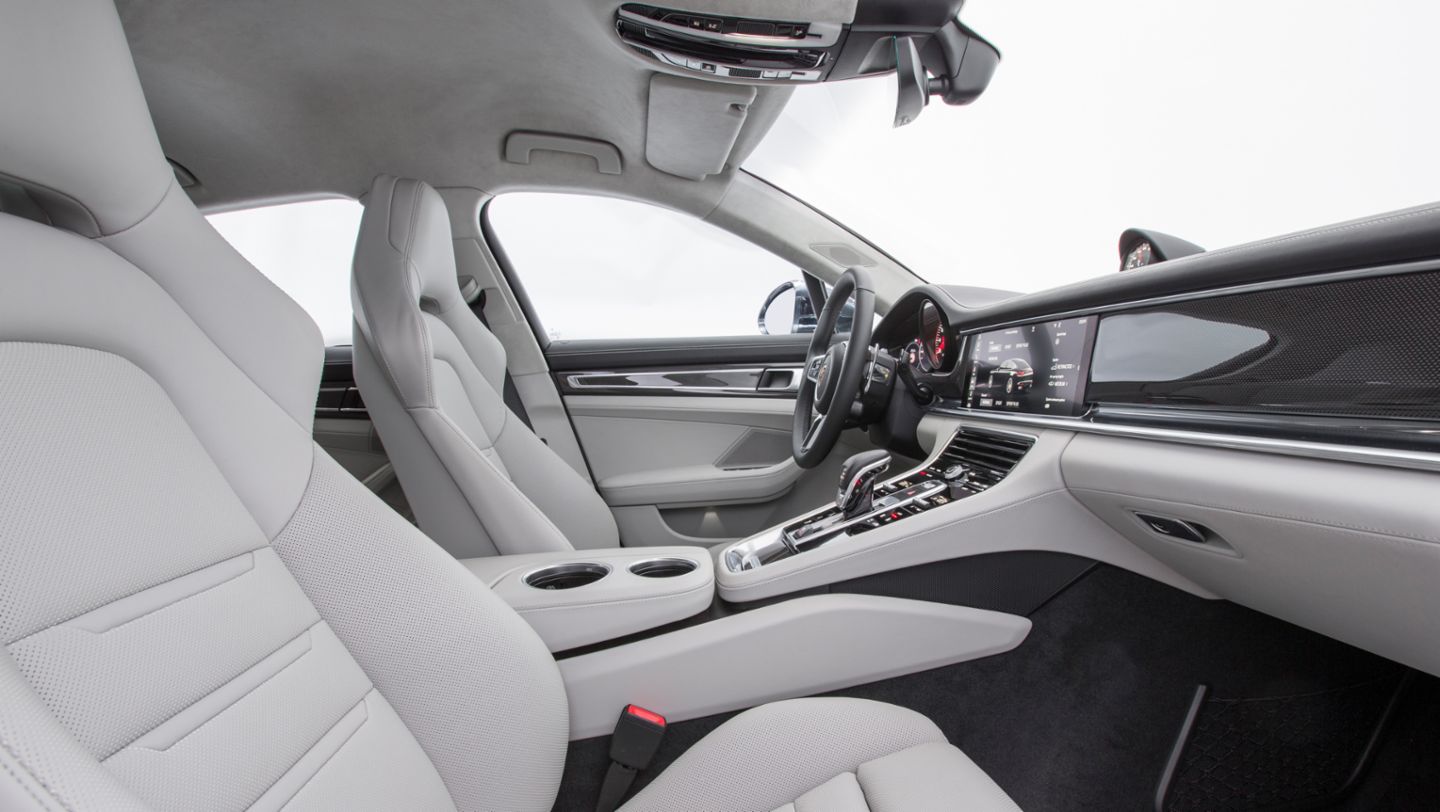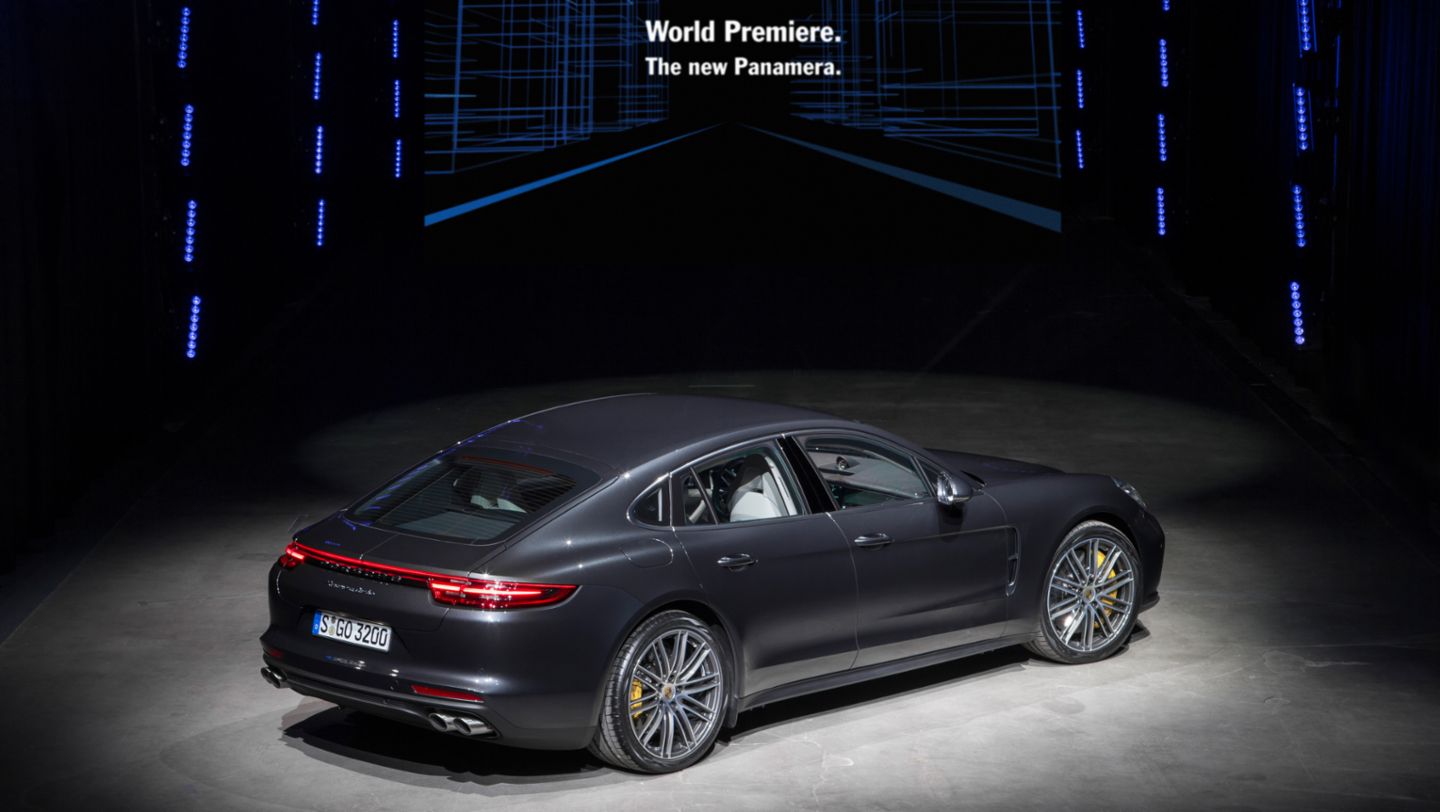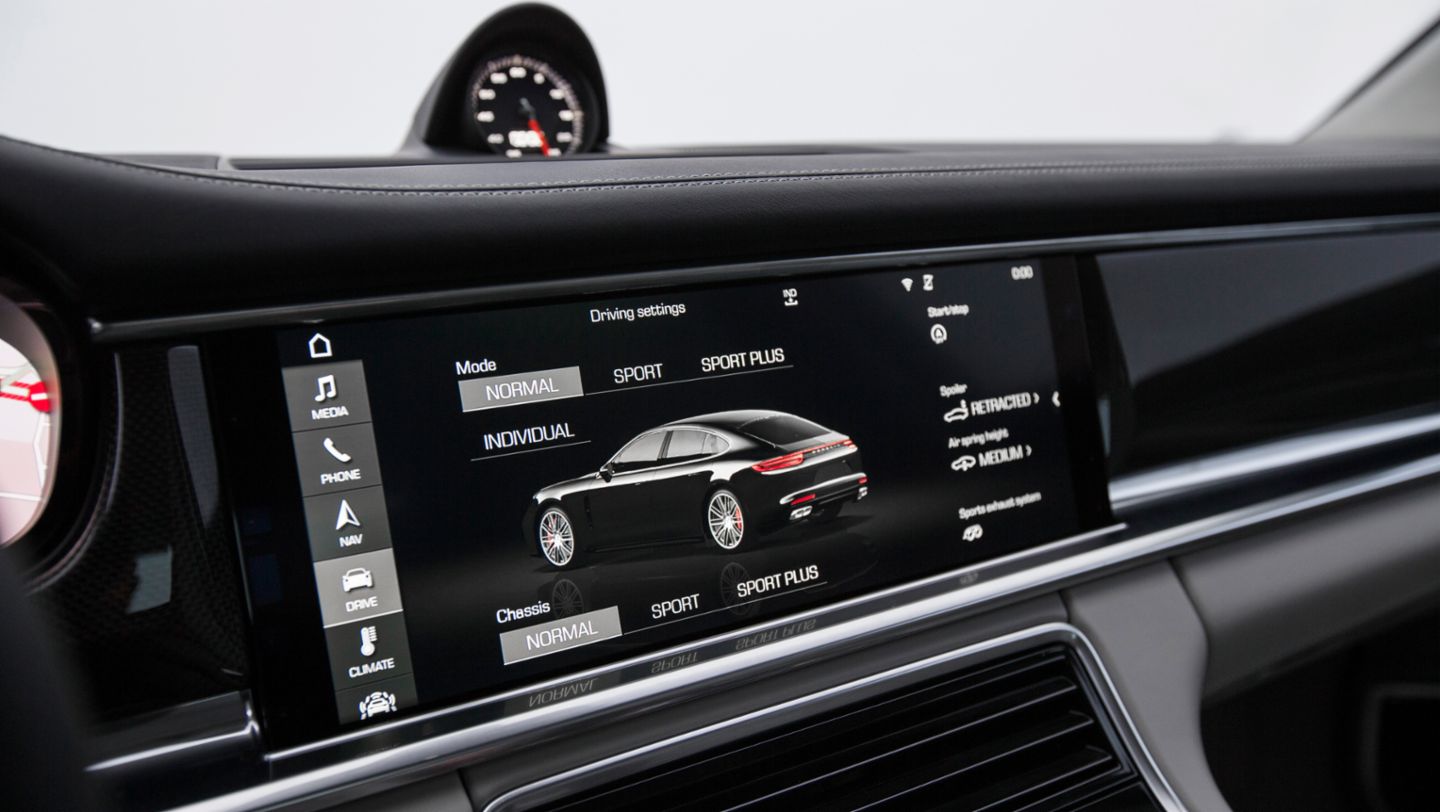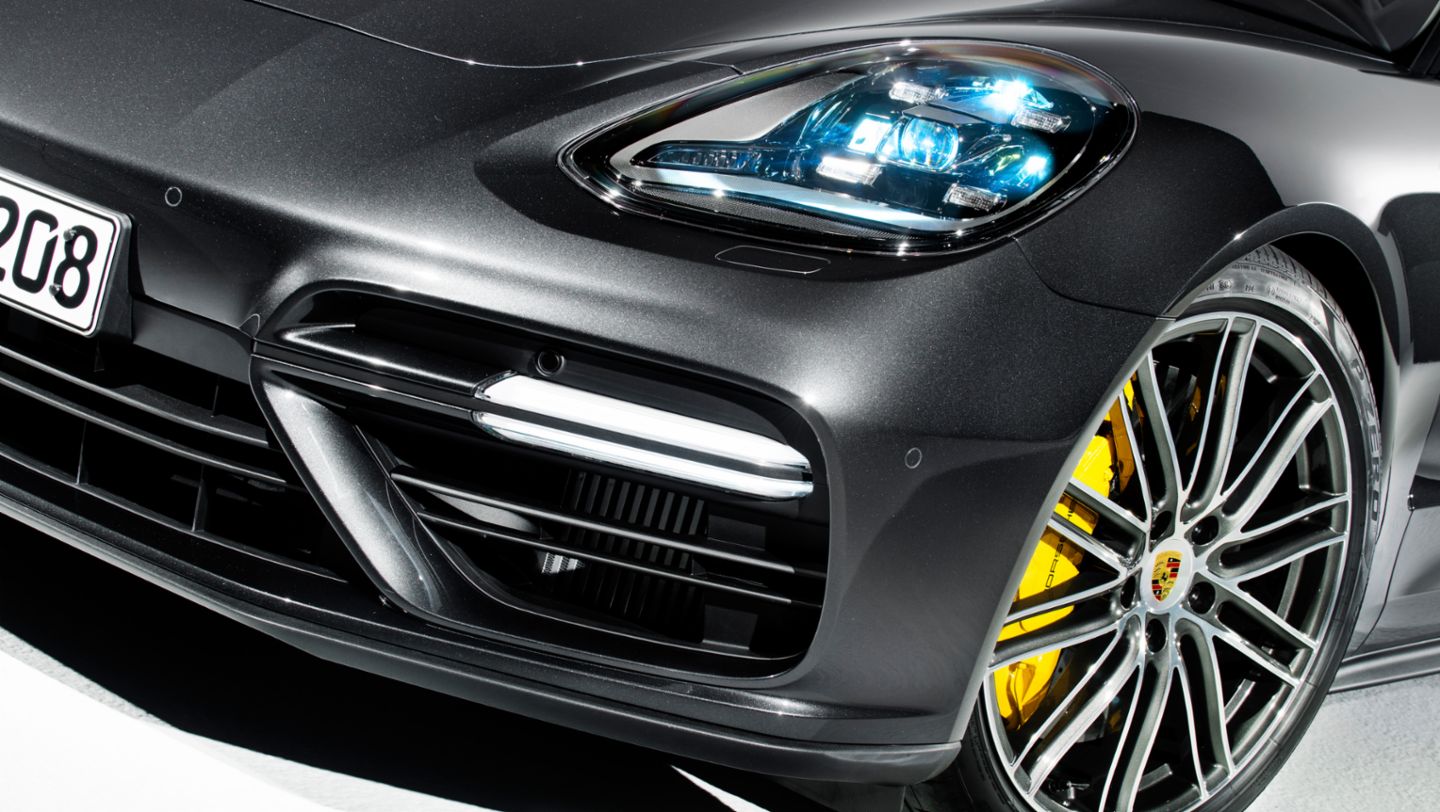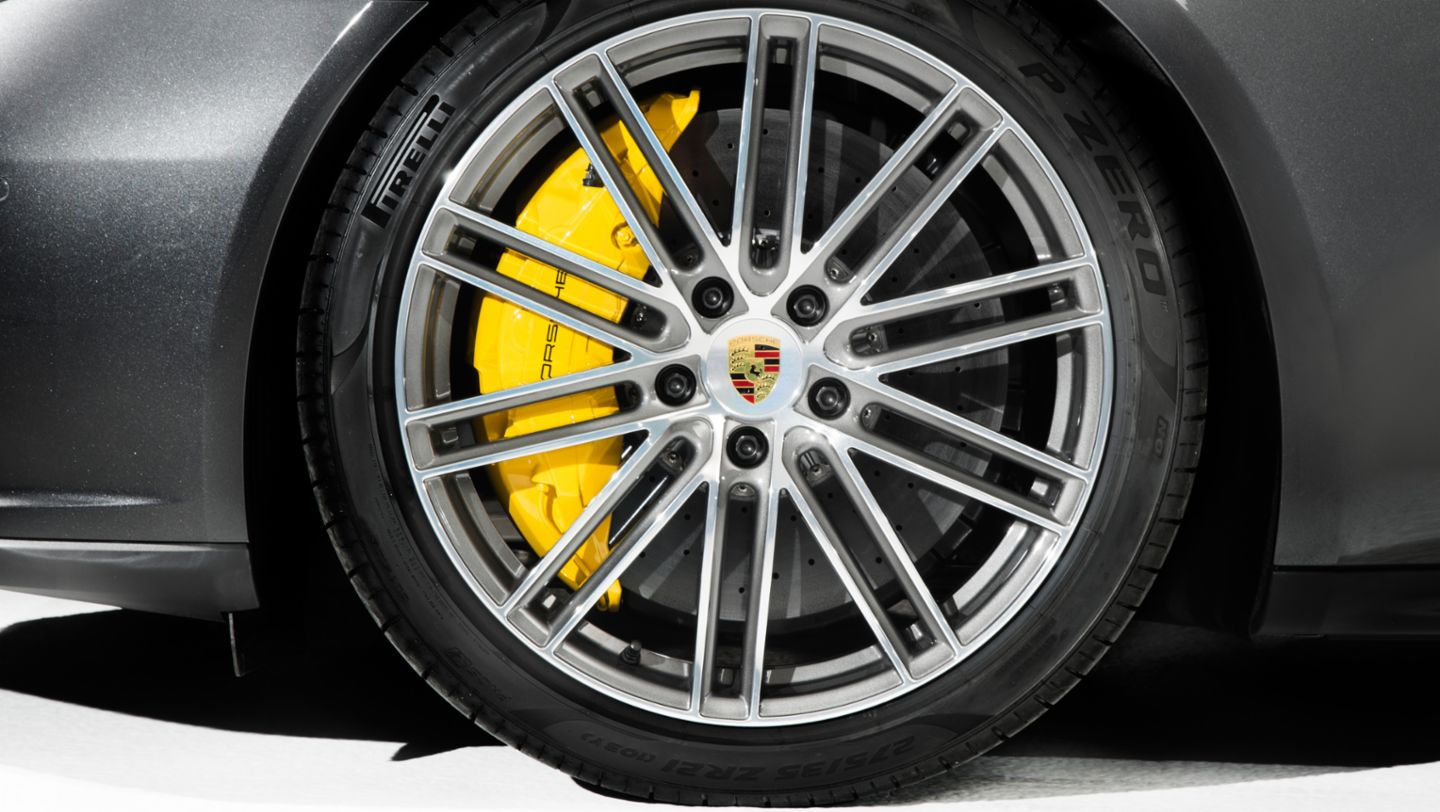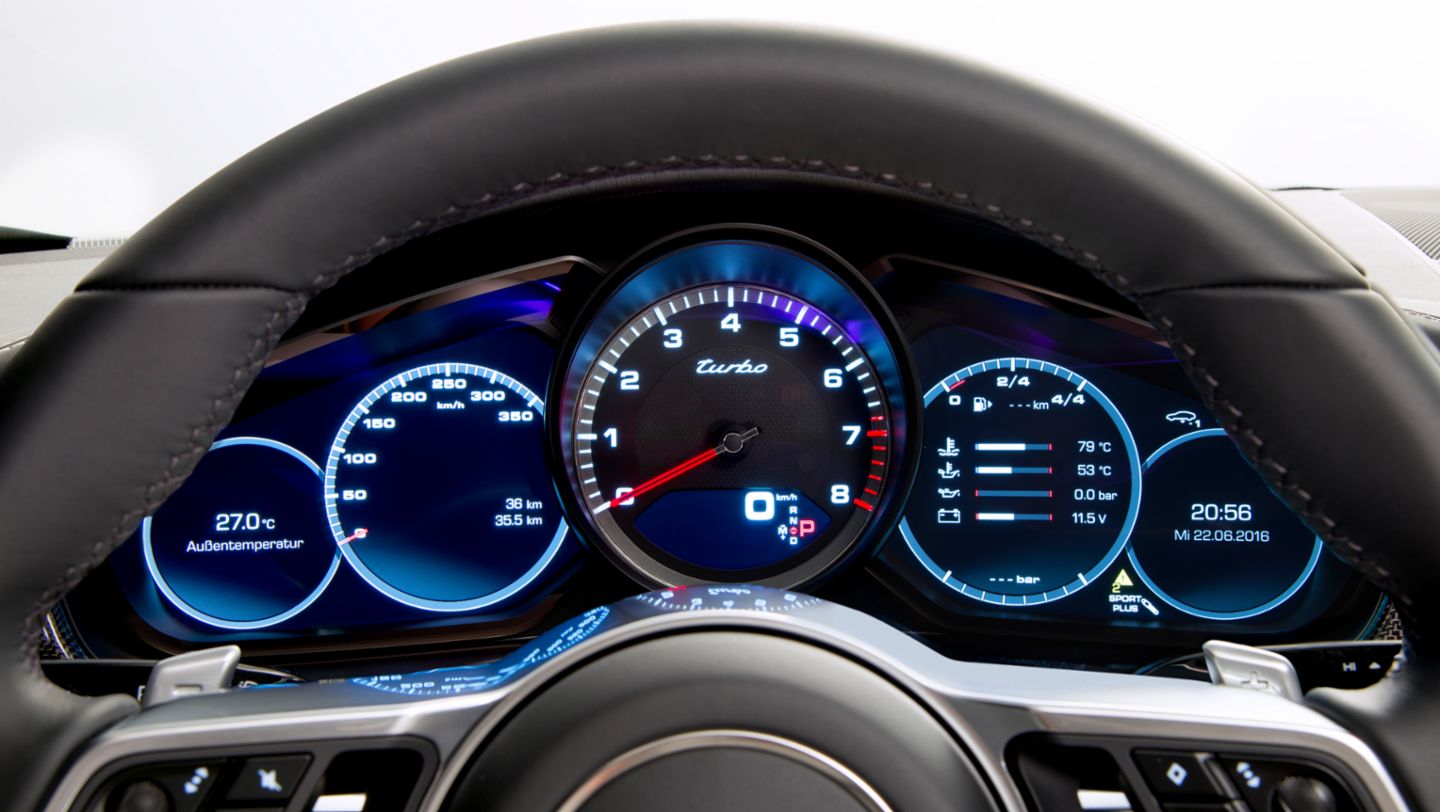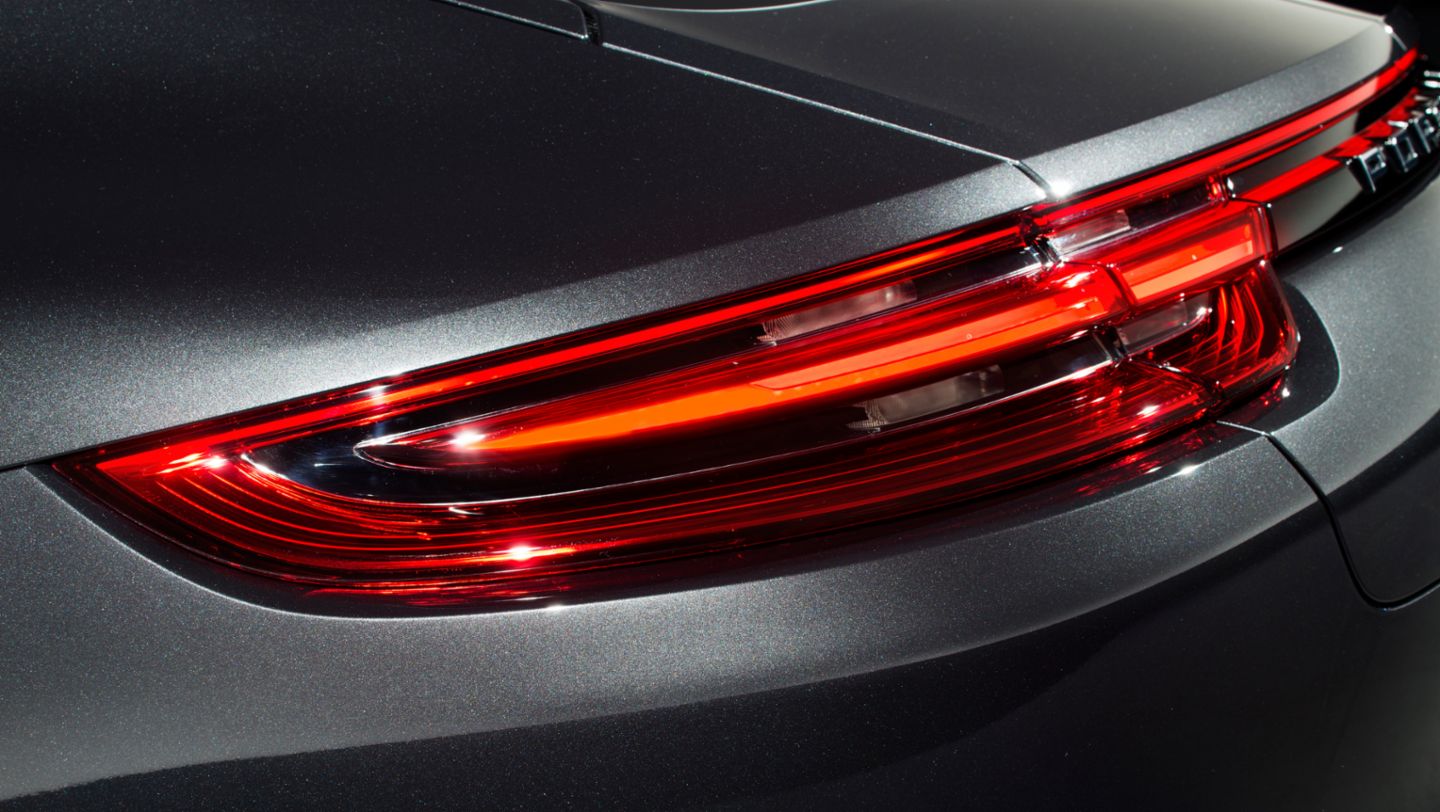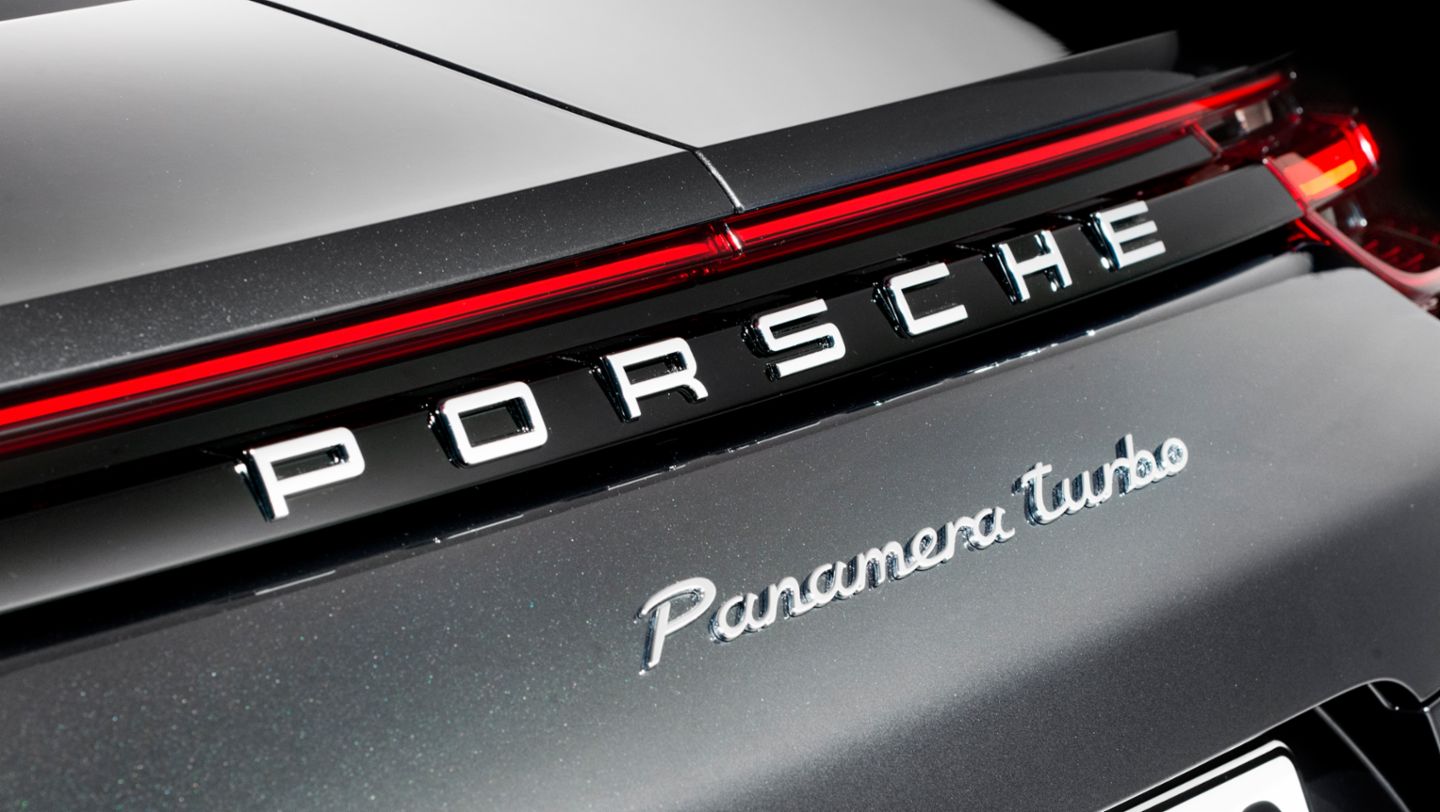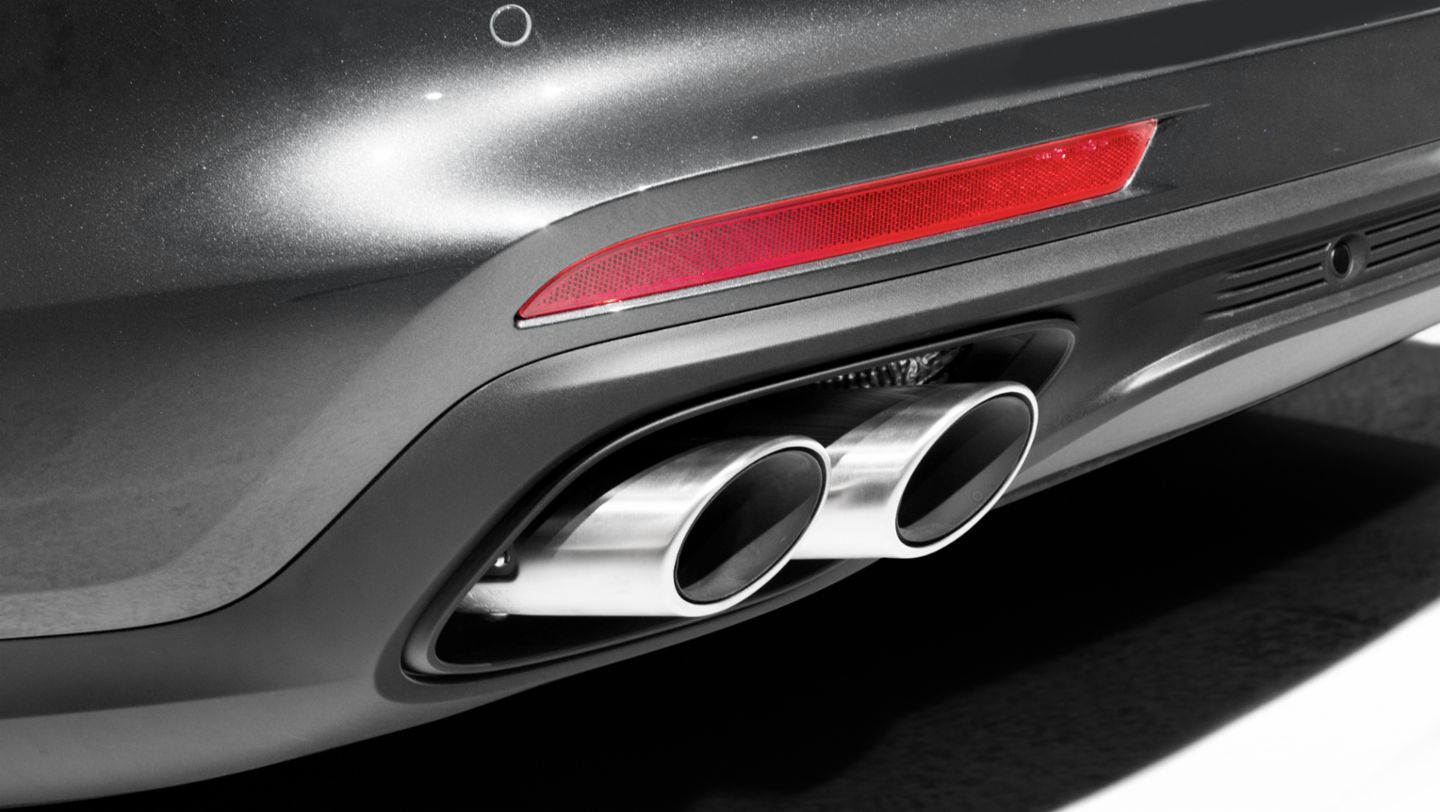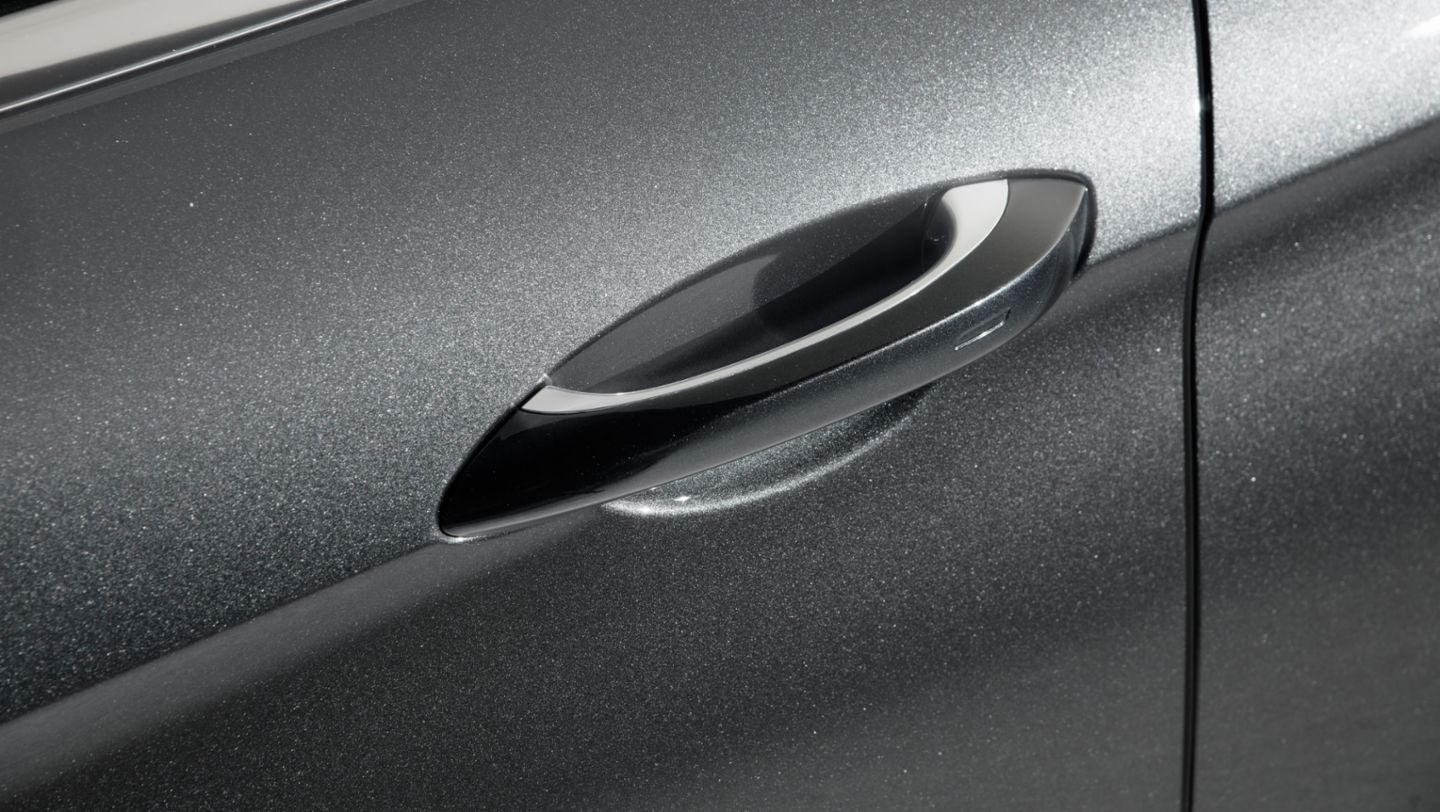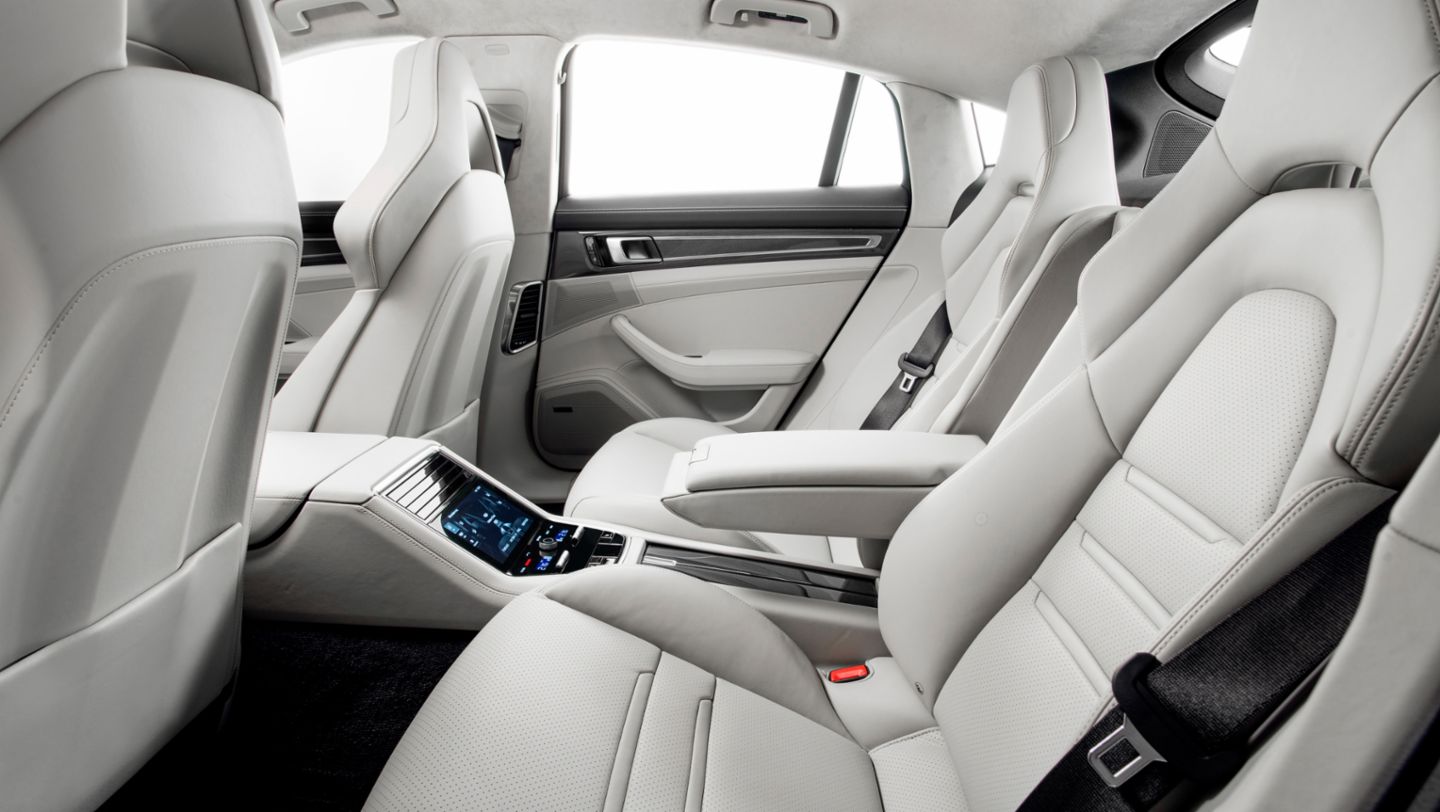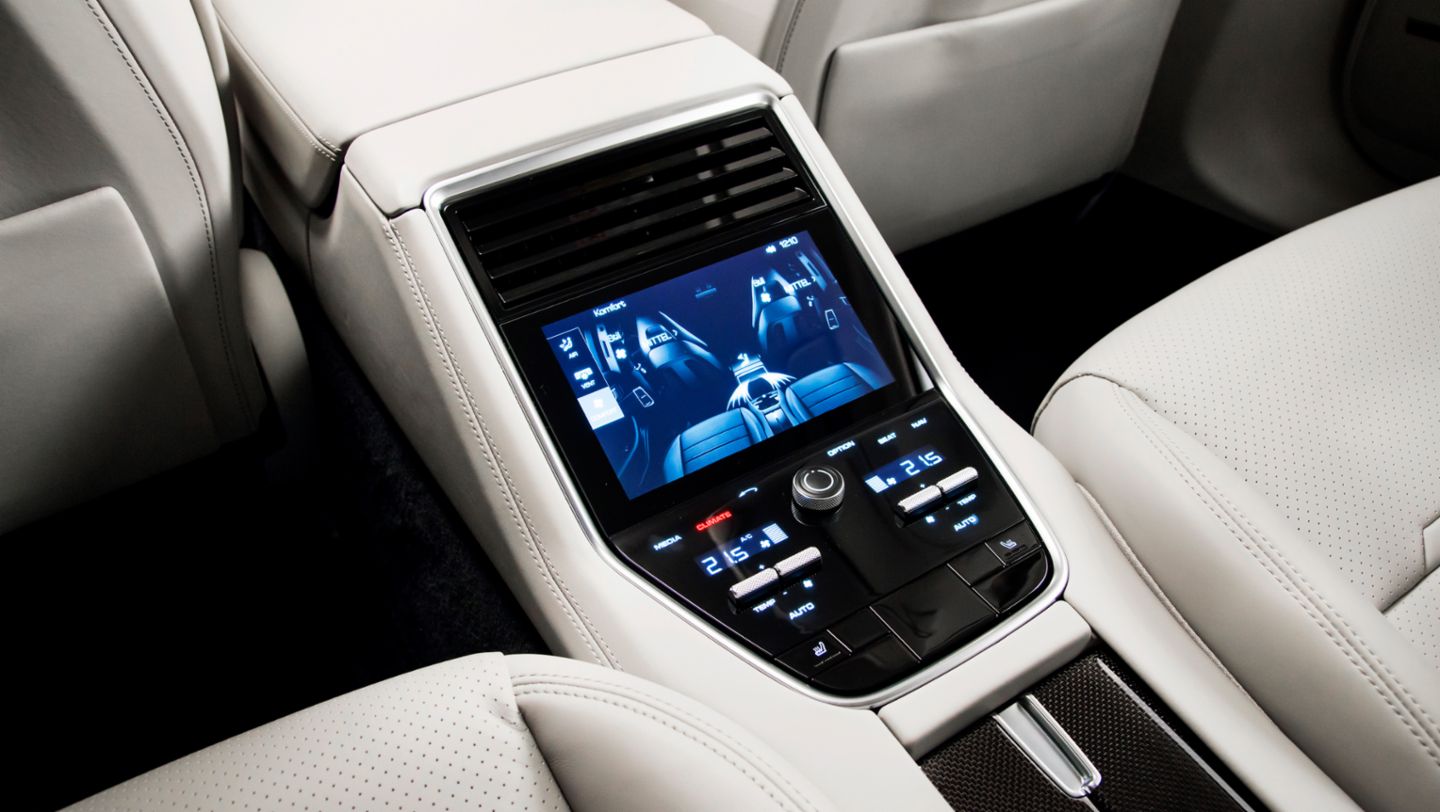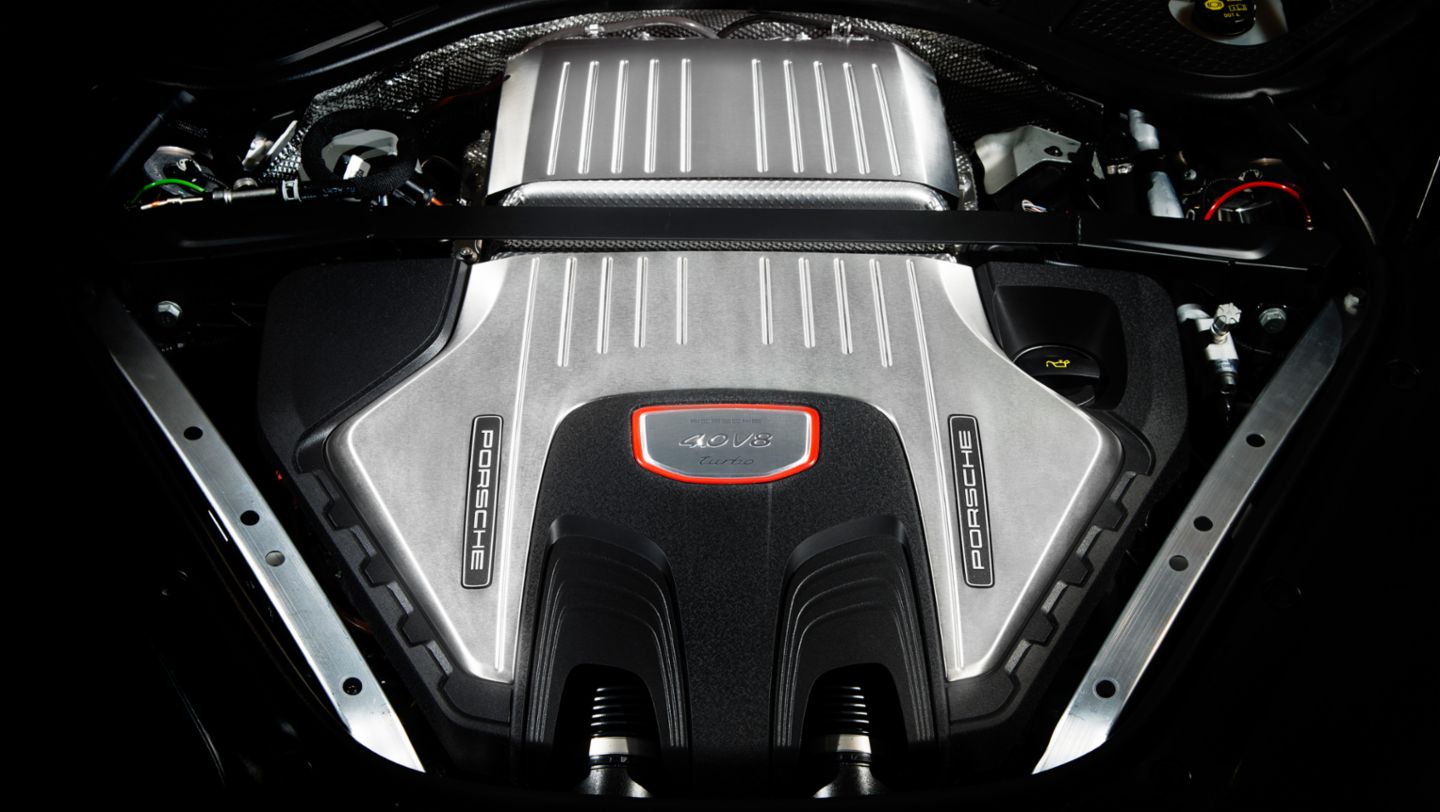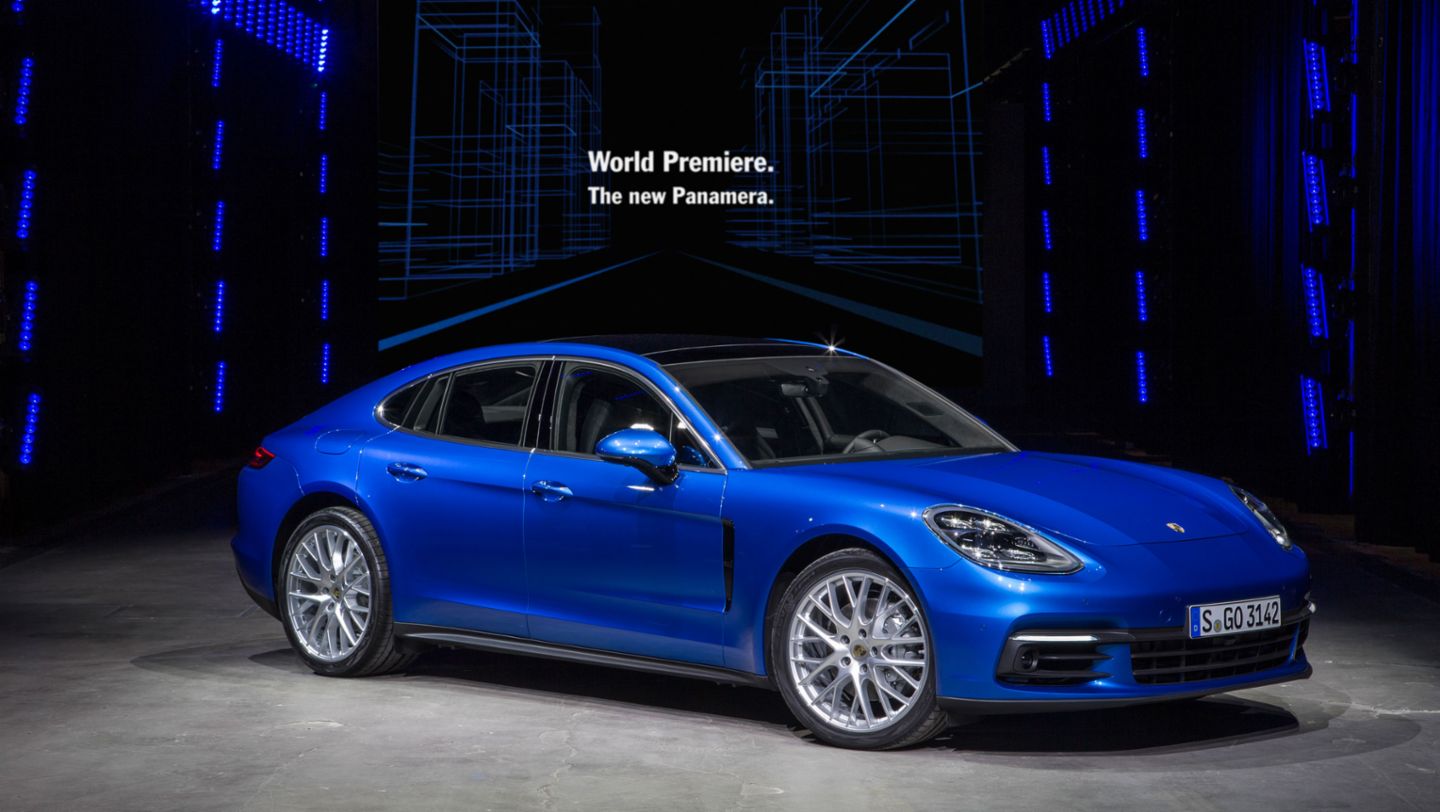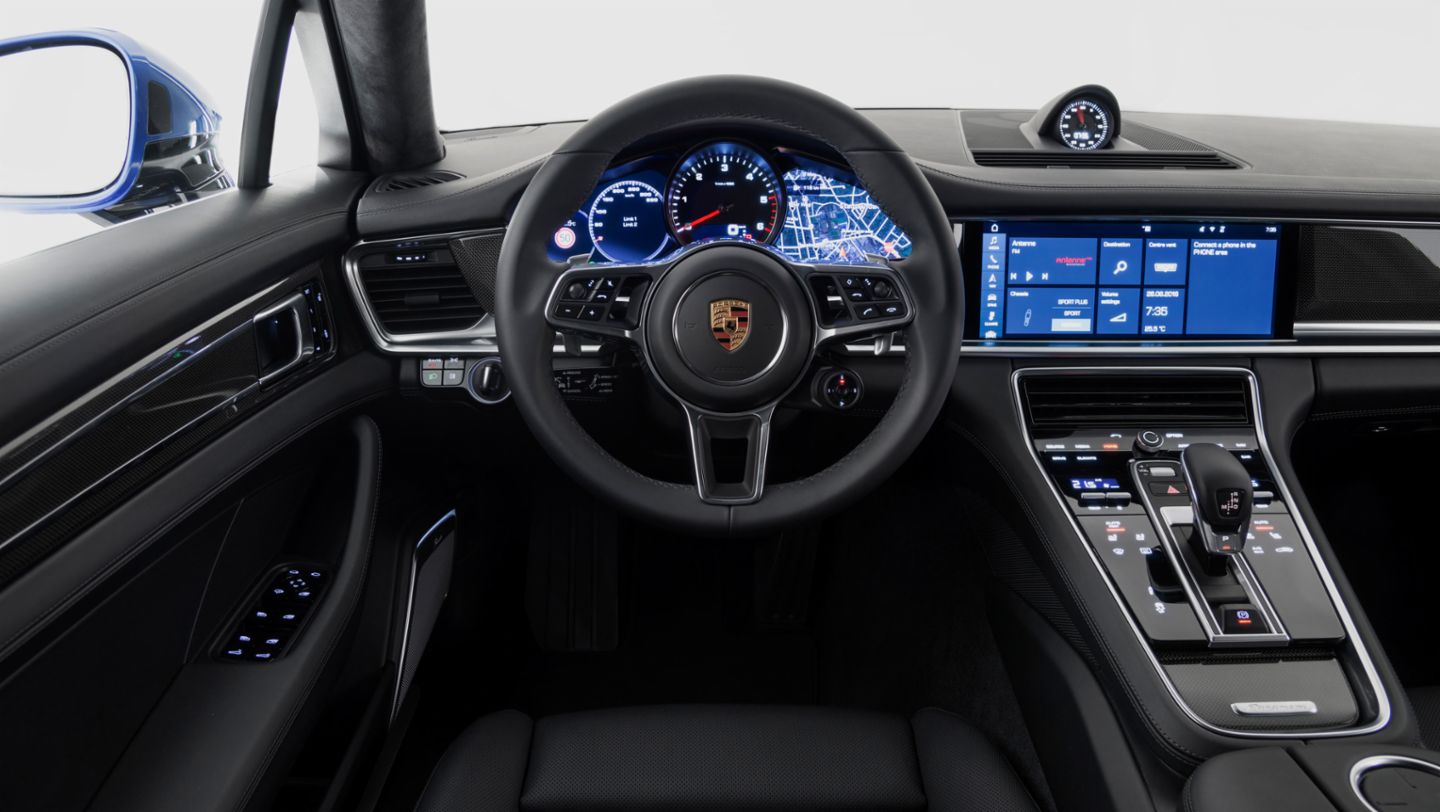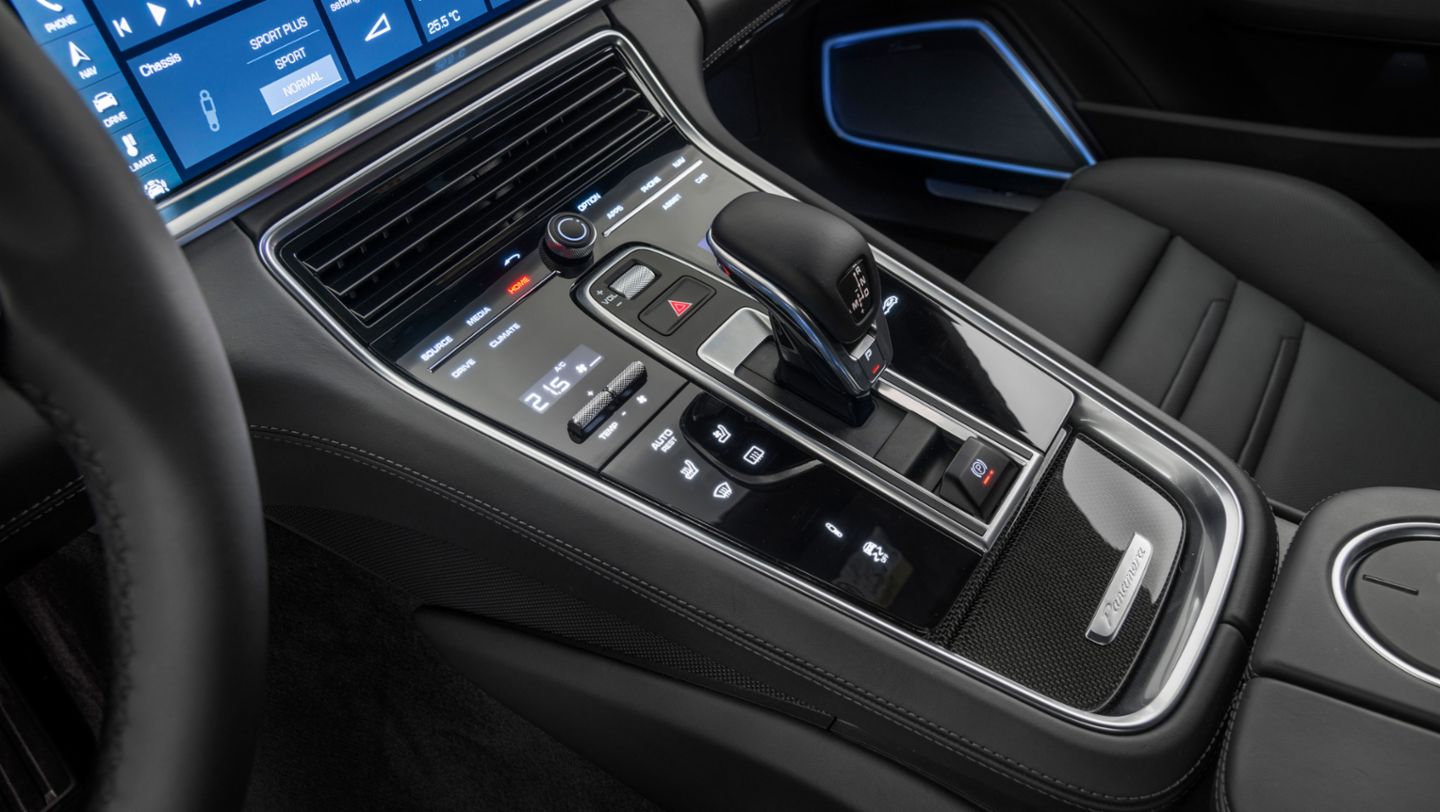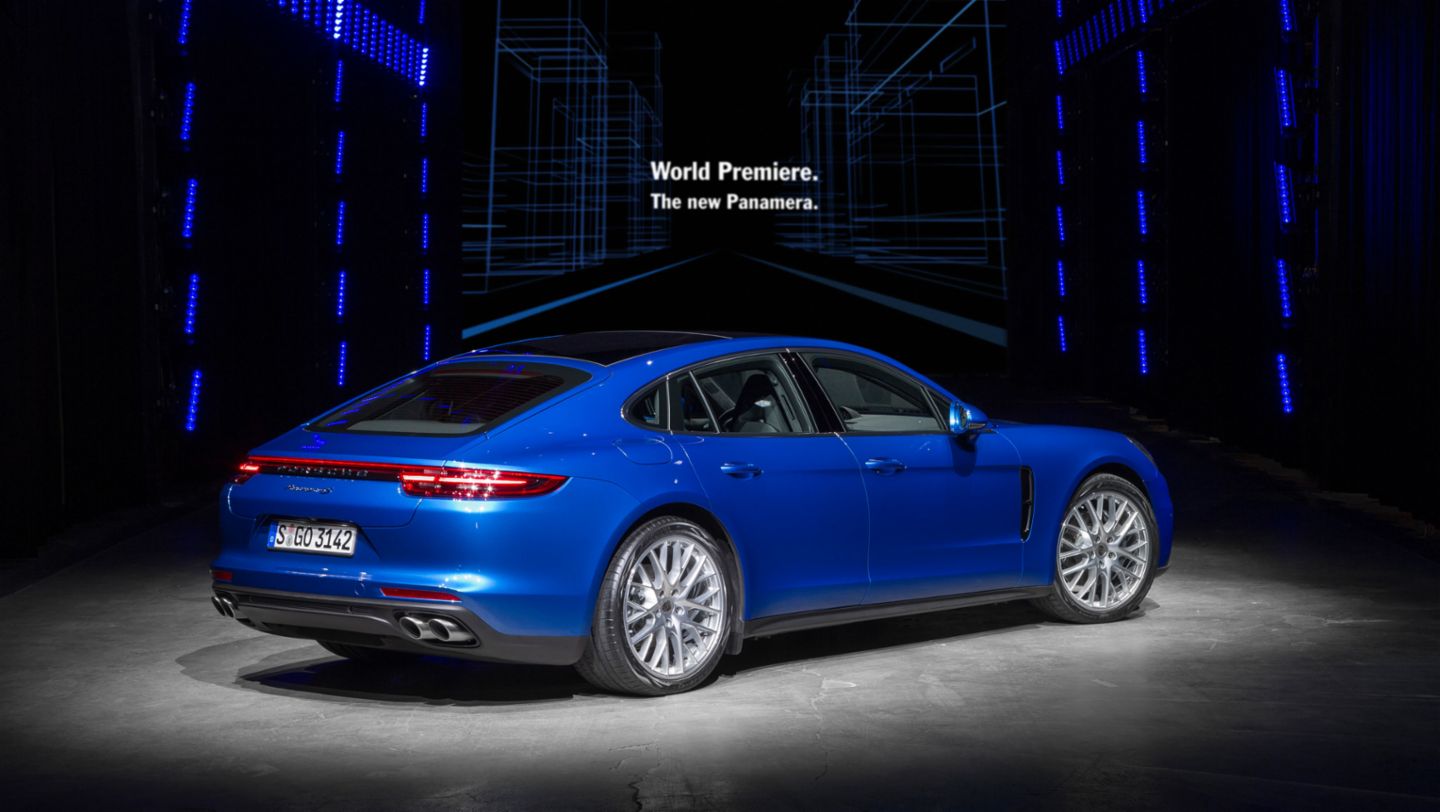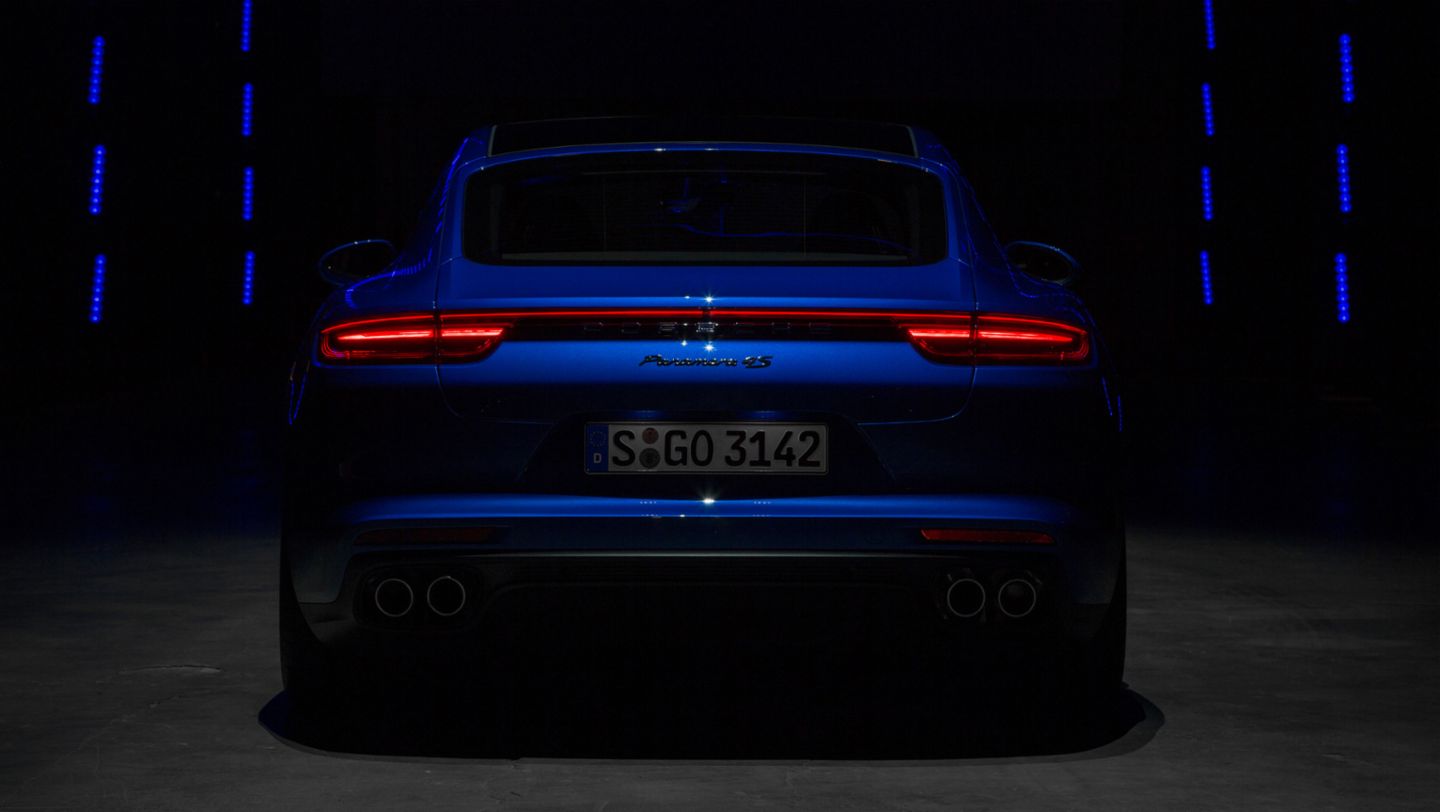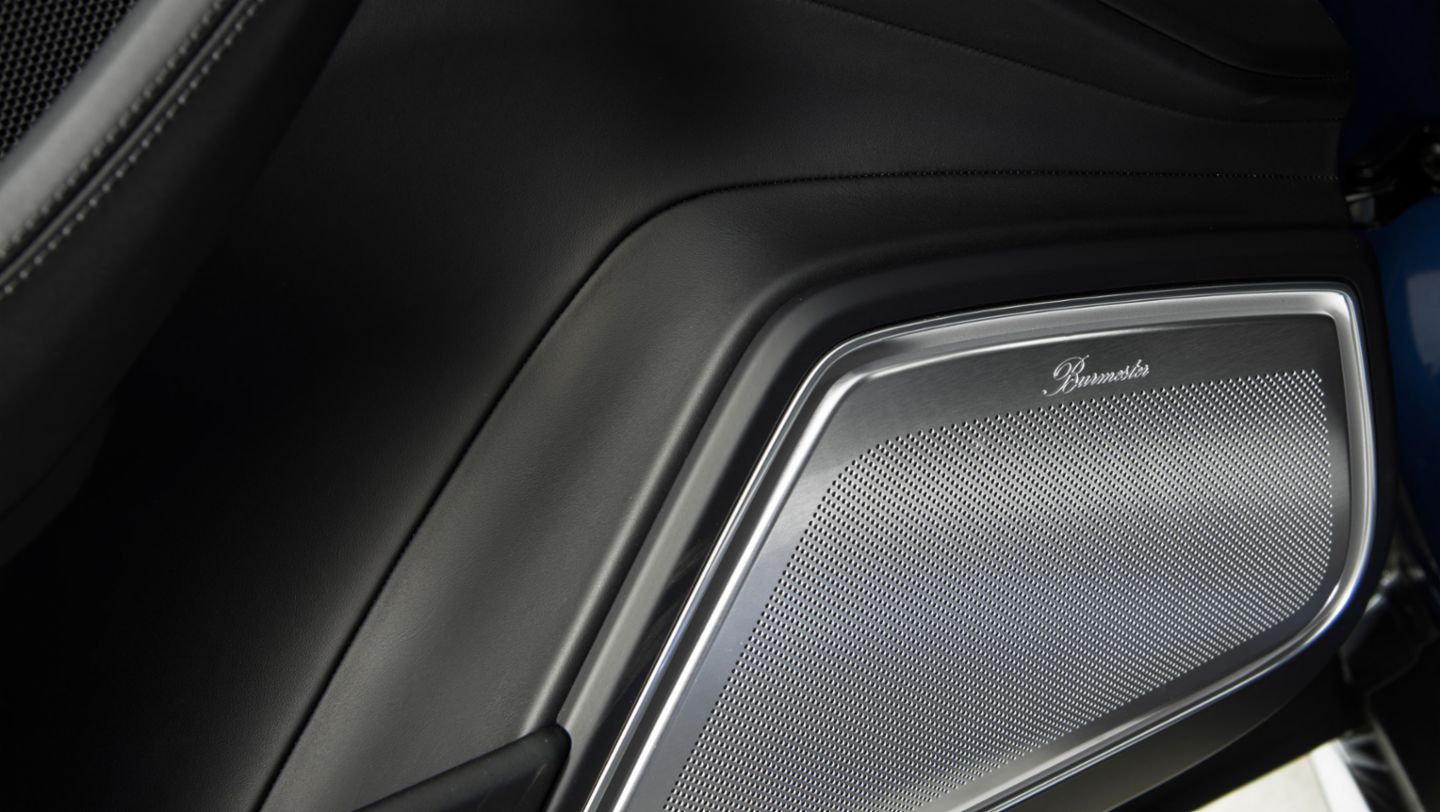Porsche celebrated the world premiere of the new Panamera in Berlin to a spectacular display of lights, music and choreography. Over 300 international media representatives – as well as guests from politics, business, sports and society – saw, for the first time, the second generation of the Gran Turismo, which has been redeveloped from the ground up. The new Porsche Panamera reconciles two contrasting characteristics more than ever before: it offers both the performance of a sports car and the comfort of a luxury saloon.
“We have tapped into the segment of luxury sport saloons with the Panamera. Since it launched in 2009, more than 150,000 units of the Panamera have been sold. In the new model, you see here a completely redeveloped automobile – with new engines, a new design and new technologies. Also new is that we are now manufacturing the second generation vehicle entirely at our Leipzig production site. We have also invested a sum of 500 million euros – which includes a completely new body manufacturing facility,” emphasised Oliver Blume, Chairman of the Executive Board of Porsche AG.
The design language of the new Panamera creates a link to the Porsche 911 by its even more dynamic flyline and specific design elements of the sports car icon. “An observer will immediately recognise the coupé-like roof line, but now it is much ‘faster’, even more dynamic and now includes a new side window look that emphasises the coupé-like side view even more,” said Michael Mauer, Head of Style Porsche AG, who explained the design targets that were set for the new model: “The new Panamera can be made out at first glance as a Panamera, but also as the new Panamera. Its strengths have been reinforced, its weaknesses eradicated and above all its character preserved.”
The new twin-turbo engines of the Panamera are more powerful, and thanks to the new eight-speed dual-clutch transmission (PDK II) they are up to 16 per cent more fuel-efficient. At the beginning of November, the Panamera will launch on the market with three different engines and exclusively with all-wheel drive: as the Panamera Turbo with 404 kW / 550 hp (combined fuel consumption 9.4 – 9.3 l/100 km; CO2 emissions 214 – 212 g/km), the Panamera 4S with 324 kW / 440 hp (combined fuel consumption 8.2 – 8.1 l/100 km; CO2 emissions 186 – 184 g/km) and the Panamera 4S Diesel with 310 kW / 422 hp (combined fuel consumption 6.8 – 6.7 l/100 km; CO2 emissions 178 – 176 g/km).
For an even larger spread between comfort and sportiness, the Panamera now has such features as a new three-chamber air suspension, rear axle steering and the new electronic 4D Chassis Control chassis management system. Many new assistance systems also enhance ride comfort as well as safety.
In the new Panamera, Porsche is also introducing a future-oriented display and control concept. The new Porsche Advanced Cockpit with its smartphone-like user interfaces and configurable LED screens impresses with its intuitive functionality. In addition, the new Porsche Communication Management (PCM 4.1) offers an entirely new range of connectivity by its intelligent digital functions and online services. In the new Panamera, which customers can order now, Porsche Connect is being introduced in all models. It extends existing vehicle functions by adding digital services and apps such as those used for remote control of certain vehicle functions by smartphone – and others to more efficiently use one’s time during the drive.
Consumption data
Panamera Turbo: combined fuel consumption 9.4 – 9.3 l/100 km; CO2 emissions 214 – 212 g/km
Panamera 4S: combined fuel consumption 8.2 – 8.1 l/100 km; CO2 emissions 186 – 184 g/km
Panamera 4S Diesel: combined fuel consumption 6.8 – 6.7 l/100 km; CO2 emissions 178 – 176 g/km
